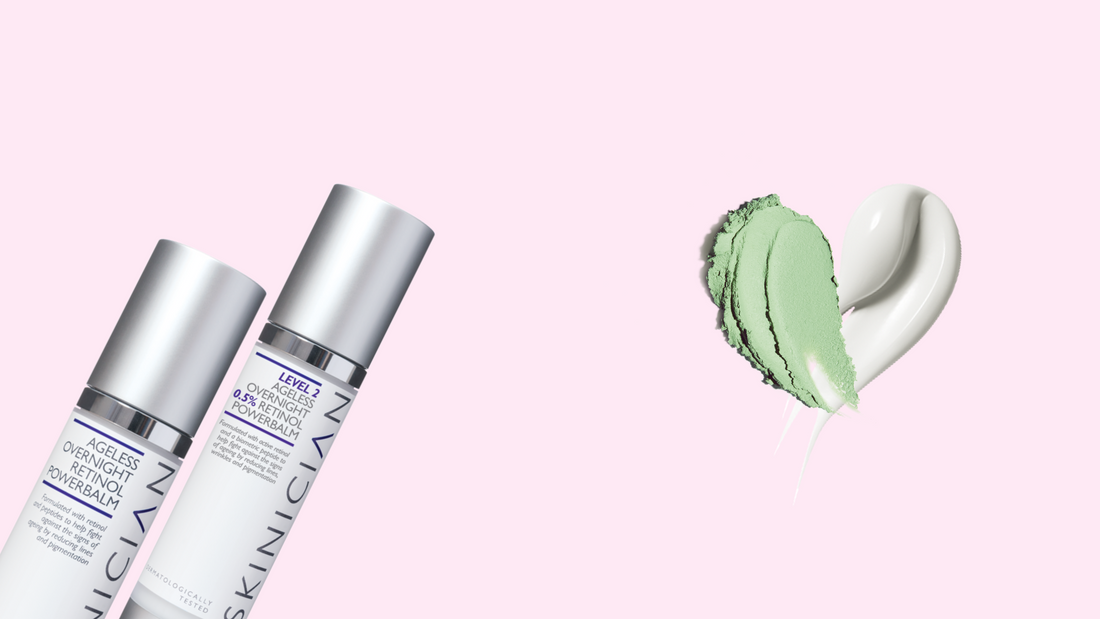
Everything You Need To Know About Retinol: Your Retinol Questions Answered
Share
What is Retinol?
Retinol—a derivative of vitamin A that boasts a long list of benefits— has been a buzz word in the skincare community over the last year.
At SKINCIAN we have our Ageless Overnight Retinol Powerbalm that works to improve skin texture, boost collagen production and diminish dark spots. It’s easy to see why our customers love it. But retinol use must be introduced with care as it comes with its fair share of side effects, like irritation and redness if used incorrectly.
What are the skincare benefits of using retinol?
Retinol helps to brighten dull skin, reduce breakouts by regulating oil production, and diminish the appearance of hyperpigmentation, fine lines and wrinkles. Prolonged use of retinol can make skin healthier and more youthful-looking.
Can all skin types use retinol?
Any skin type can use Retinol however Retinol is a potent ingredient and should be used with care. Women who are pregnant should not use retinol.
What age should I start using retinol?
We recommend starting using retinol in your thirties as this is when collagen levels in the skin start decreasing more rapidly. However, it’s important to remember that all ages can reap the rewards of a retinol-infused skincare routine.
Is retinol good for mature skin?
Yes, retinol is beneficial for mature skin. Retinol is a derivative of vitamin A and is widely recognised for its anti-ageing properties. For mature skin in particular, retinol can:
- Promote cell renewal: Retinol stimulates cellular turnover, shedding the top layer of skin. this process improves skin texture leaving skin feeling smooth.
- Boosts Collagen Production: Collagen is a protein that keeps skin firm and elastic. Naturally, as our skin matures, collagen production naturally decreases, leading to wrinkles and sagging skin. Retinol helps to stimulate collagen production, reducing the appearance of these aging signs.
- Targets Pigmentation: Retinol can help to fade age spots and hyperpigmentation by accelerating the replacement of older, discoloured skin cells with newer ones.
How do I incorporate retinol into my skincare routine?
When using Retinol for the first time we recommend introducing slowly and steadily into your skincare routine. You can start with a bi-nightly application and when skin is building tolerance, increase to every night. If you have sensitive skin we recommend buffering your Retinol product with a night cream. (1 part retinol 3 parts night cream)
Another key tip for using retinol is to incorporate it into your night-time skincare routine only, as it makes your skin more sensitive to sunlight. It's also important to remember that you will need to stop using retinol in the lead up to pro-longed sun exposure e.g. before going on your summer holidays.
Can you use Vitamin C with retinol?
While some skincare ingredients are better used in combination with others, some are powerful enough to benefit the skin with or without combination. Retinol and vitamin C fall into both of these categories. The answer is yes.
Used separately, these two ingredients can target these specific skin conditions.
However, when used together, retinol and vitamin C create the ultimate skin-beautifying duo for any skin type.

